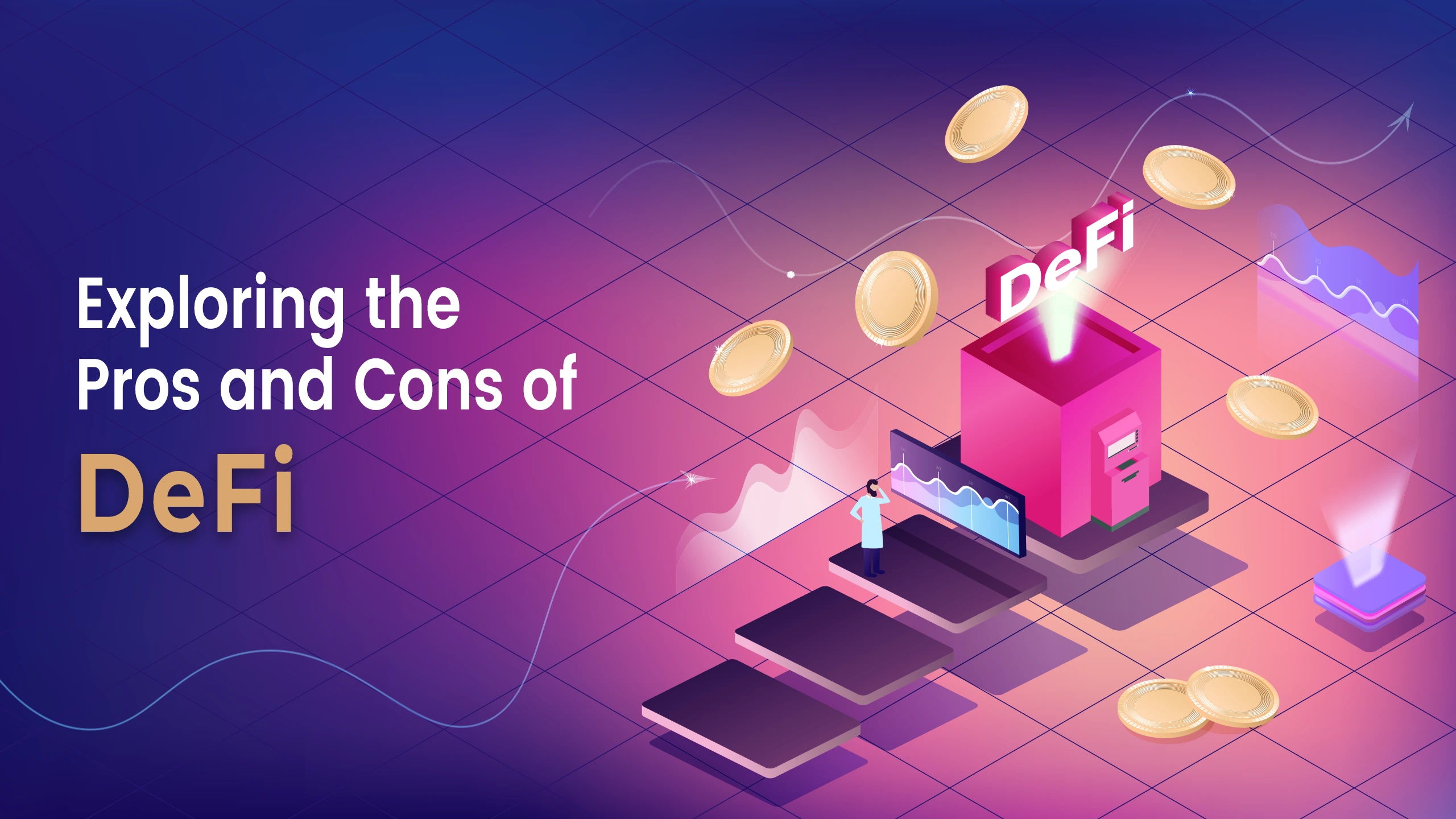Decentralized Finance, commonly known as DeFi, has emerged as one of the most revolutionary applications of blockchain technology. By leveraging the power of smart contracts and decentralized networks, DeFi aims to transform traditional financial systems by offering transparency, accessibility, and autonomy. While the concept of DeFi holds immense promise, it is important to understand both the advantages and disadvantages associated with this groundbreaking financial frontier. In this blog, we will delve into the pros and cons of DeFi to help you gain a comprehensive understanding of its potential impact.
Pros of DeFi:
1. Accessibility and Inclusion:
DeFi provides financial services to individuals who are underserved or unbanked by traditional banking systems. Anyone with an internet connection and a compatible device can participate in DeFi platforms, regardless of their geographical location or socioeconomic background. This inclusivity has the potential to empower millions of individuals by granting them access to financial tools and services previously unavailable to them.
2. Transparency:
DeFi operates on a public blockchain, ensuring a high level of transparency. All transactions, contracts, and protocols are recorded and visible to anyone on the network. This transparency helps build trust and reduces the risk of fraud or manipulation. Users can verify the legitimacy of smart contracts, track funds, and audit transactions, fostering a more secure and accountable financial ecosystem.
3. Elimination of Middlemen:
DeFi eliminates the need for intermediaries such as banks, brokers, or other financial institutions. This disintermediation allows for peer-to-peer transactions, cutting out unnecessary costs and delays associated with traditional financial systems. By removing middlemen, DeFi platforms facilitate direct interactions between participants, leading to quicker transactions, reduced fees, and increased control over one’s financial assets.
4. Programmability and Smart Contracts:
One of the defining features of Decentralized Finance is the use of smart contracts. These self-executing agreements with predefined rules automate processes, enabling the creation of innovative financial applications. Smart contracts provide greater flexibility, efficiency, and reliability compared to traditional paper-based agreements. They allow for complex financial transactions, lending and borrowing, decentralized exchanges, and more, without the need for intermediaries.
Cons of DeFi:
1. Security Risks:
While Decentralized Finance offers increased transparency, it is not immune to security risks. Smart contracts are susceptible to vulnerabilities, and any flaws in their code can be exploited by malicious actors. Additionally, decentralized exchanges and other DeFi platforms can be targeted by hackers, resulting in substantial financial losses. It is crucial for users to exercise caution, conduct thorough research, and adopt strong security measures to mitigate these risks.
2. Regulatory Challenges:
The decentralized nature of Decentralized Finance poses regulatory challenges for governments and financial authorities worldwide. The lack of centralized control and anonymity can potentially facilitate illicit activities, including money laundering and fraud. As a result, regulators are grappling with how to strike a balance between protecting consumers and fostering innovation in the DeFi space. Unclear or inconsistent regulations may hinder the mainstream adoption of DeFi and limit its growth potential.
3. Lack of User-Friendly Interfaces:
Decentralized Finance platforms often require a certain level of technical expertise, making them less user-friendly for individuals unfamiliar with blockchain technology. The complexity of interacting with decentralized applications (dApps), managing private keys, and understanding various protocols can be overwhelming for newcomers. Improving the user experience and creating intuitive interfaces are vital to attract a broader audience and expand the reach of Decentralized Finance.
4. Volatility and Market Risks:
DeFi protocols often involve cryptocurrencies as the underlying assets. As cryptocurrencies are highly volatile, the value of assets held within DeFi platforms can fluctuate significantly. Users face the risk of losing their investments due to market volatility or unforeseen events. It is crucial to exercise caution, conduct thorough research, and diversify investments within the Decentralized Finance ecosystem.
Conclusion:
Decentralized Finance represents a paradigm shift in the world of finance, offering numerous advantages such as accessibility, transparency, and elimination of intermediaries. However, it is not without its challenges. Security risks, regulatory uncertainties, usability concerns, and market volatility are factors that users and the industry need to address. As the DeFi space continues to evolve, it is crucial for participants, regulators, and developers to work together to harness its potential while mitigating the associated risks. With careful navigation and continual improvement, Decentralized Finance has the potential to reshape traditional finance, democratize access to financial services, and empower individuals worldwide.




